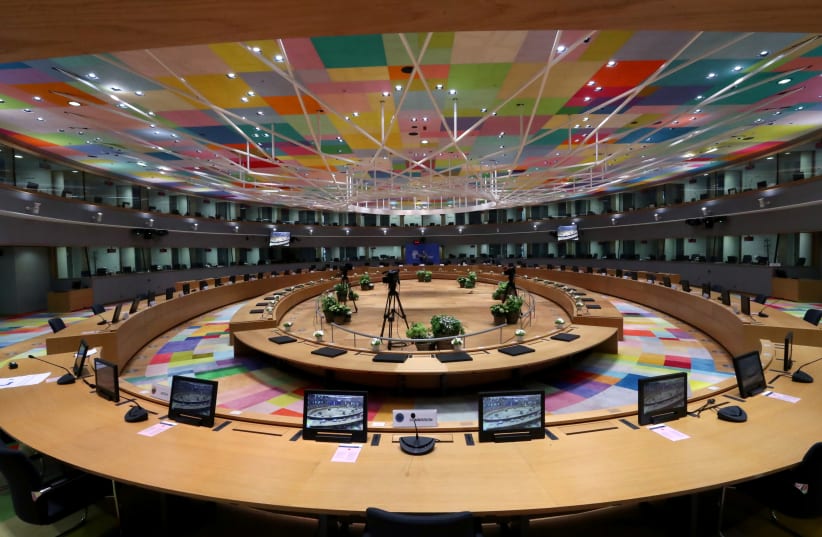BRUSSELS - At least nine European Union countries and the bloc's executive have urged new sanctions on Belarus over a disputed election and a crackdown on protesters, ahead of emergency talks among member states on Friday.Most EU foreign ministers are in favour of imposing sanctions on individuals responsible for organising the presidential election in Belarus and for the use of force against protesters that followed, Poland's Foreign Minister Jacek Czaputowicz said.
If no objections arise, countries are likely to draw up a blacklist of people to be banned from travelling to the EU and have their assets frozen, diplomats said.
Any final decision could follow within weeks, they said - rapid by EU standards.
Poland, the Czech Republic, Estonia, Latvia, Lithuania and Denmark called in a letter for "restrictive measures" against those responsible for the official election result, which gave President Alexander Lukashenko 80%, and for beatings of protesters by security forces, who detained around 6,700 people.
"We would need to find a careful balance between pressure against and engagement with Belarus President Lukashenko. We believe the EU should assume the role of a mediator as soon as possible," said the letter, seen by Reuters.
Germany, Austria and Sweden have already called for sanctions straight away.
Diplomatic sources said the main sceptic was Hungary, which has previously called for all EU sanctions on Minsk to be lifted.
The head of the EU's executive arm, Ursula von der Leyen, tweeted: "We need additional sanctions against those who violated democratic values or abused human rights in Belarus. I am confident today's ... discussion will demonstrate our strong support for the rights of the people in Belarus to fundamental freedoms and democracy."
Czech Prime Minister Andrei Babis tweeted: "I firmly hope that these are the last hours of the dictatorial regime and that the citizens will win.
"Belarusians need our quick help. The elections in Belarus must be repeated, transparent and in the presence of foreign observers."
The EU first imposed sanctions on Belarus in 2004. It tightened them in 2011 over abuses of human rights and democratic standards.
Many were lifted after Lukashenko released political prisoners in 2016. But an arms embargo remains, as do sanctions on four people over unresolved disappearances.
Lukashenko denies electoral fraud. His government freed many detained demonstrators on Friday after issuing a rare public apology.
